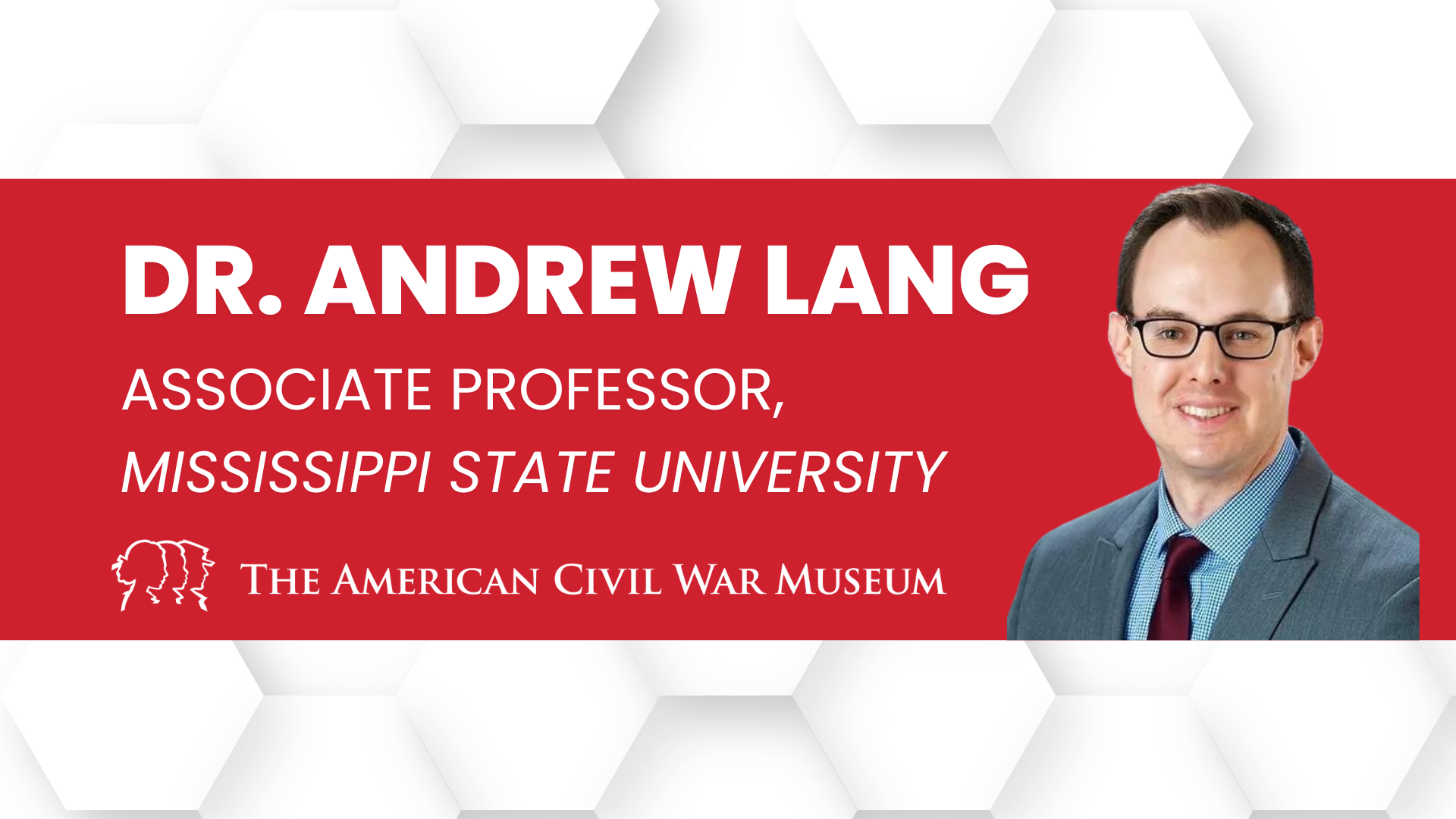
Dr. Andrew Lang
Associate Professor
Mississippi State University
Andrew F. Lang specializes in the history of nineteenth-century America, using the era of the American Civil War as a lens through which to investigate the century’s dynamic setting. His most recent book, A Contest of Civilizations: Exposing the Crisis of American Exceptionalism in the Civil War Era (2021), is published in University of North Carolina Press’s landmark series, Littlefield History of the Civil War Era. From a field of more than 90 submissions, the book ranked as one of seven finalists for the 2022 Gilder Lehrman Lincoln Prize, which stands among the foremost awards in American historical scholarship. The book features diverse casts of nineteenth-century Americans who regarded the United States as the modern world’s pinnacle nation. But the commanding place of slavery within a republic of liberty imposed irreconcilable understandings of American nationhood, informing the causes, conduct, and consequences of the Civil War. Taking seriously how and why nineteenth-century Americans considered their Union as the zenith of modern political enterprises, the book interrogates the complex reasons why Americans waged a civil war over the very existence and meaning of their nation.
Prof. Lang serves on the Executive Council of the Society of Civil War Historians (SCWH), the field’s flagship professional organization. He also sits on advisory boards of the John L. Nau III Center for Civil War History (University of Virginia) and the American Civil War Museum (Richmond, Virginia). Since 2020, he has served on the editorial board of the Journal of the Civil War Era, the discipline’s leading journal.
Symposium Topic:
“WHEN AMERICANS COULD NOT ESCAPE HISTORY:
ABRAHAM LINCOLN AND THE NEW BIRTH OF FREEDOM“
Unlike some, Lincoln never considered his nation divinely ordained and placed on an inevitable path of destiny, instead, he used the advent of disunion and civil war to author an enduring narrative of national life. When he spoke at Gettysburg of a “new birth of freedom,” Lincoln explored the loyal citizenry’s sovereign reason and moral sense to reorient their republic not forward in time but rather back to its natural origins.


